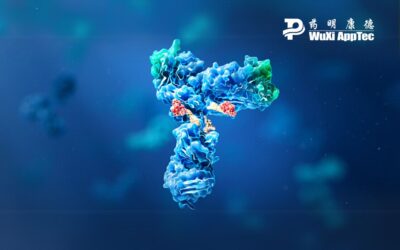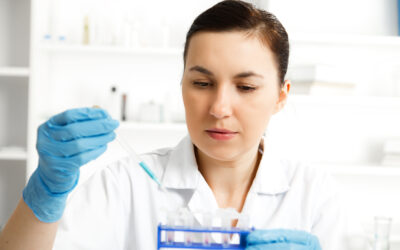Drug safety assessment is a highly complex, involved and molecule-specific process, which is why most drug developers benefit from working with a testing partner. But not all CROs are created equal. Here are six characteristics to consider.
Safety assessment studies – and the data they produce – are critical to the progression of your drug candidate and a required step prior to First-In-Human (FIH) studies.
The process for conducting these studies, from selecting the right tests to collecting the right data for Investigational New Drug (IND) submissions or Clinical Trial Applications (CTAs), is substantial. Tests range from general toxicology and safety pharmacology to carcinogenicity, with decisions on specific assays, species, and routes of administration that must be made.
For these reasons and more, many drug developers seek to work with a CRO to handle the work.
But with so many CROs out there – ranging in size, focus area, and capabilities – it can be difficult to narrow your options; especially if your management doesn’t already have an idea of who they want to work with.
We put together this useful checklist to aid you when considering your testing partner and planning your safety assessment program.
#1. Expertise
Toxicology testing require specific techniques to make sure the study is conducted successfully. This means you need a laboratory testing partner well-versed in the right science and techniques.
Here’s how to assess the expertise of your potential partner:
- Ask Around: Toxicology is a relatively small world. Reach out to your peers for word-of-mouth experience working with different CROs.
- Request Examples: Reach out to the testing partner and ask how many studies they’ve run for a specific type of technique, and ask for a list of studies in the last 5 years.
- Interview Technical Team: Have a call with the technical team to learn more about their experience.
- Hire Consulting Toxicologist: If you’re not familiar with what technical questions to ask, you can hire an external toxicologist who can help you with the decision-making process.
#2. Customizable Programs
Drug development is a costly process, and toxicology studies in particular are expensive. While this may not be as urgent of an issue for a big pharmaceutical company, smaller or startup companies need to count every penny. The goal is to find a lower cost option that still provides quality and value.
Keep in mind that cost is not just an overall number. It’s important to see what’s included in the package. Expertise determines quality, and what’s included in the cost determines value.
For example, bioanalysis is an important component of toxicology studies. Results from bioanalytical assays are essential to interpret data and help design subsequent studies. So,
are bioanalytical services included in your package? What about method development, validation or transfer? Always check the content of the package in order to get the most value for the cost.
#3. Timeline
Drug development is as time-intensive as it is costly – and time is money. Everyone wants to push a drug to market as soon as possible. How quickly can your potential testing partner initiate the study? What is their turnaround time for reporting?
The industry standard for reporting time for some studies can be 10-12 weeks or even longer. Then, you need to submit a Standard for Exchange of Nonclinical Data (SEND) package – required for IND submission. Providing timely SEND data sets is a bottle neck for many CROs , and few can do it quickly.
(WuXi AppTec’s SEND team provides SEND data sets within 10 business days of the QA audited draft report date.)
#4. Services
When selecting a safety assessment laboratory testing partner, keep in mind if they are large enough to support your future work. Toxicology studies don’t end in the preclinical stage. Once you have the greenlight to start clinical trials, you also need certain toxicology studies to support it.
As the drug developer, it’s your responsibility to keep up with the toxicology work – but your testing partner can help if they offer the right set of services.
If your short term, IND-enabling studies are done with your partner, they will have developed all the necessary analytical and formulation methods. If you use the same partner for your long-term clinical safety assessment testing, you don’t have to redevelop assays and methods – saving you crucial time and money.
Also, make sure your partner can handle all the different studies you need conducted. For example, if you are testing a small molecule, you will need (at least) general toxicology, safety pharmacology, and genetic toxicity assays. It’s better to have one CRO to get everything done in one place, rather than have some studies done in other places. This streamlines testing and makes data collection seamless.
#5. Communication
The CRO’s sales process itself will tell you a lot about what it’s like to work with them.
How responsive are the business representatives? How in depth is the information they share? How well do they answer your questions? Initial conversations with these representatives are a window into the rest of the process. If they’re quick, responsive and communicative, you can likely expect the technical team to respond in a similar manner if you were to place your study with them.
On a similar note, vet not just the CRO as a whole but also the study director, the single point of control for the entire study. The study director is not just an administrator but someone who could, from a certain level, determine the quality of the study. Have a consultant interview the study director to see how they would handle certain situations, report data, and communicate updates and issues.
#6. Location
To conduct safety assessment studies, you will have to send test articles and reagents to your testing partner or the lab at which you want the assay conducted. So, it’s important to consider where your partner is located to make sure the shipment can get there in time.
(WuXi AppTec’s Laboratory Testing Division is so big that we have a dedicated analytical team supporting toxicology studies. Whether you’re testing a small or large molecule or a new modality, the team can run almost all assays needed. If it is agreeable, we can even have your samples analyzed onsite to avoid the sample shipment trouble entirely.)
Conclusion
Testing partner selection should not be taken lightly. If done right, this partner will stick with you for the entire testing process and become an important extension of your team. In order to make the right decision, focus on evaluating the testing partner’s expertise, cost, timeline capabilities, services, communication skills and location.
Learn more about WuXi AppTec’s safety assessment services or contact an expert today.
As a global company with operations across Asia, Europe, and North America, WuXi AppTec provides a broad portfolio of R&D and manufacturing services that enable the global pharmaceutical and life sciences industry to advance discoveries and deliver groundbreaking treatments to patients. Through its unique business models, WuXi AppTec’s integrated, end-to-end services include chemistry drug CRDMO (Contract Research, Development and Manufacturing Organization), biology discovery, preclinical testing and clinical research services, helping customers improve the productivity of advancing healthcare products through cost-effective and efficient solutions. WuXi AppTec received an AA ESG rating from MSCI for the fourth consecutive year in 2024 and its open-access platform is enabling around 6,000 customers from over 30 countries to improve the health of those in need – and to realize the vision that “every drug can be made and every disease can be treated.”


